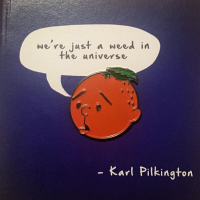Emotion processing in brain changes with tinnitus severity

Tinnitus, otherwise known as ringing in the ears, affects nearly one-third of adults over age 65. The condition can develop as part of age-related hearing loss or from a traumatic injury. In either case, the resulting persistent noise causes varying amounts of disruption to everyday life.
While some tinnitus patients adapt to the condition, many others are forced to limit daily activities as a direct result of their symptoms. A new study reveals that people who are less bothered by their tinnitus use different brain regions when processing emotional information.
"We are trying to understand how the brain adapts to having tinnitus for a very long time," said Fatima Husain, University of Illinois speech and hearing science and neuroscience professor who conducted the research with kinesiology and community health professor Edward McAuley and neuroscience graduate students Jake Carpenter-Thompson and Sara Schmidt. Husain also is affiliated with the Beckman Institute for Advanced Science and Technology. Carpenter-Thompson is lead author on the paper, which is published in the journal PLOS ONE.
Husain's research uses functional magnetic resonance imaging, an imaging tool that enables researchers to see changes in blood oxygen levels in the brain during an activity.
Using fMRI, Husain's team previously compared how the brain processes emotion in patients with mild tinnitus and people without the condition. While in the scanner, study participants listened to and rated pleasant, unpleasant and neutral sounds (e.g. kids giggling, babies crying and people babbling in the background). The researchers reported that, in contrast to those without tinnitus, patients with mild tinnitus showed greater engagement of different areas in the brain when processing emotional sounds.
To further understand this altered brain activation, Husain conducted a new fMRI study to see if there were any differences among tinnitus patients. Because some patients adjust to the ringing in the ears while others do not, the severity of the condition can vary greatly. Husain's team measured the severity of tinnitus, or tinnitus distress, with a series of surveys and questionnaires assessing hearing, attention, emotion and sleep.
Patients with lower tinnitus distress used an altered pathway to process emotional information. The path did not rely on the amygdala, commonly believed to play an important role in emotion processing in the brain. Instead, patients who had adapted to their tinnitus symptoms used more of the brain's frontal lobe, a region critical for attention, planning and impulse control. The researchers suggested that the greater activation of the frontal lobe might be helping to control emotional responses and reduce tinnitus distress.
Another aim of Husain's research was to evaluate possible interventions to help patients reduce tinnitus distress. The study reported that physical activity might influence emotion processing and help to improve quality of life of those bothered by tinnitus. Husain hopes more research will investigate this link. Her future research on the topic will also include active duty service members, a group highly affected by trauma-induced, early-onset tinnitus.
The risk I took was calculated, but man, am I bad at math - The Mincing Mockingbird
Comments
-
brianlux...paging brianlux!0
-
Some days I wish for a little less emotional processing, without the ear ringing.www.cluthelee.com0
-
Haha! You rang? Or was it just my ears?hedonist said:brianlux...paging brianlux!

This is a fascinating article and hugely helps explain some of my previous experiences. My tinnitus has been loud and ever-present since September, 1993. It was cause by a loud explosion of hydrogen and oxygen gasses in close proximity to my head and was made worse by a woman laughing loudly next to my right ear about a year later. My tinnitus became extremely loud at that point and I completely fell apart to the point of a failed (thank goodness) attempt at suicide by ingesting large quantities of alcohol and Xanax. I later OD'ed a second time, not by trying to kill myself, but by trying to ease pain- I also have hyperacusis which at it's worst, for years, made even the slightest sounds unbearable. It was a living hell.
One of the things that helped my get back on my feet was reading about how William Shatner got bad tinnitus from an explosion on a Star Trek set. He had a similar reaction and wrote about how one day he was walking on a beach and wanted to kill himself because he couldn't tolerate the noise in his head. He later found that tinnitus maskers (basically hearing aid-like devices that create white noise) helped him (I didn't care for them although an external fan noise helps me sleep at night). He later went on to become a board member of the American Tinnitus Association (see links below).
I told this story on another forum and one of the replies stated basically, "I have really loud tinnitus but I don't mind it". Lucky fellow. And just a few days ago our town drunk came into the store and was being loud so I backed off a bit and he said something like, "What's your problem? My tinnitus is louder than yours." Maybe, maybe not.
So the article goes a long way in explaining why I may have been more sensitive to the affects of tinnitus than others. I've learned to compensate by not over-protecting my ears (which was making things worse) and somehow learning to accept the noise. Part of that is probably just simple attenuation to a constant. If I stop and listen to the ringing it's loud and irritating but it's always there so much of the time I don't even think about it.
https://www.ata.org/managing-your-tinnitus/patient-stories/message-william-shatner-you https://www.youtube.com/watch?v=E7bL9BhESYA "It's a sad and beautiful world"-Roberto Benigni0
https://www.youtube.com/watch?v=E7bL9BhESYA "It's a sad and beautiful world"-Roberto Benigni0 -
I've had this for about 10 years now. It was triggered from a very severe sinus & ear infection. It drove me nuts for about two years and now I don't really notice it. I mean, I do notice it, but it gets kinda drowned out amongst other noise. A quiet room, however, or trying to sleep at night can often get very annoying, but I don't have nearly the reaction to it as I did when I first got it.
I'm going to give this article a nice in-depth read when I get home today.Star Lake 00 / Pittsburgh 03 / State College 03 / Bristow 03 / Cleveland 06 / Camden II 06 / DC 08 / Pittsburgh 13 / Baltimore 13 / Charlottesville 13 / Cincinnati 14 / St. Paul 14 / Hampton 16 / Wrigley I 16 / Wrigley II 16 / Baltimore 20 / Camden 22 / Baltimore 24 / Raleigh I 25 / Raleigh II 25 / Pittsburgh I 250 -
Does this include pulsing tinnitus? Cuz that's what I have.
I can fully understand how it would lead one to consider suicide. I haven't had it very long, a year or two. But at first I had to take half an ambien if I wanted to get any sleep at all. The sound is maddening.NYC 06/24/08-Auckland 11/27/09-Chch 11/29/09-Newark 05/18/10-Atlanta 09/22/12-Chicago 07/19/13-Brooklyn 10/18/13 & 10/19/13-Hartford 10/25/13-Baltimore 10/27/13-Auckland 1/17/14-GC 1/19/14-Melbourne 1/24/14-Sydney 1/26/14-Amsterdam 6/16/14 & 6/17/14-Milan 6/20/14-Berlin 6/26/14-Leeds 7/8/14-Milton Keynes 7/11/14-St. Louis 10/3/14-NYC 9/26/15
LIVEFOOTSTEPS.ORG/USER/?USR=4350 -
Must be true. I get these rare but dramatic bouts of tinnitus. Actually, I don't even think it could be called that. It's not chronic enough maybe? I just get an occasional sudden ringing in my ears for a minute or two for no apparent reason. But anyway, my emotions must process differently when it happens, because it kind of makes me feel like I'm going crazy or something until it goes away.
 It's disconcerting! I feel lucky that it's not chronic. I can't imagine having that ALL the time.
It's disconcerting! I feel lucky that it's not chronic. I can't imagine having that ALL the time.  With all its sham, drudgery, and broken dreams, it is still a beautiful world. Be careful. Strive to be happy. ~ Desiderata0
With all its sham, drudgery, and broken dreams, it is still a beautiful world. Be careful. Strive to be happy. ~ Desiderata0 -
Well Mrs. Haiku, thanks for this thread. I have a doctor's appointment on Thursday to see a new doctor about this as a direct result of reading this thread. Wish me luck kids!NYC 06/24/08-Auckland 11/27/09-Chch 11/29/09-Newark 05/18/10-Atlanta 09/22/12-Chicago 07/19/13-Brooklyn 10/18/13 & 10/19/13-Hartford 10/25/13-Baltimore 10/27/13-Auckland 1/17/14-GC 1/19/14-Melbourne 1/24/14-Sydney 1/26/14-Amsterdam 6/16/14 & 6/17/14-Milan 6/20/14-Berlin 6/26/14-Leeds 7/8/14-Milton Keynes 7/11/14-St. Louis 10/3/14-NYC 9/26/15
LIVEFOOTSTEPS.ORG/USER/?USR=4350 -
My tinnitus has gone pulsatile a number of times (I haven't kept count but at least 5 or 6 times) and it has lasted hours or a few times a day or two. Pulsatile tinnitus is not as common as a steady tone but I'm told it's not too uncommon either. Yeah, the pulsating kind is irritating. Have you tried some kind of white or pink noise like a fan, tinnitus maskers or a sound generator or pink noise tape or CD? Everyone is different so what works for one won't necessarily work for another but most people find that having some kind of white or pink noise helps mask the sound or helps get the mind off the ringing or pulsating sounds.ldent42 said:Does this include pulsing tinnitus? Cuz that's what I have.
I can fully understand how it would lead one to consider suicide. I haven't had it very long, a year or two. But at first I had to take half an ambien if I wanted to get any sleep at all. The sound is maddening.
For many of us, severe tinnitus is hard to deal with anyway but changes can make it difficult all over again. I've had changes in pitch, pulsatile, wooshing tinnitus, multiple pitches in one or more ear and occasionally I'll hear what sound like a distant explosion in my head (very weird). For me all of that is helped by listening to music or having a soft fan running in the background. Ambien used to help but I had to give up all prescription meds because I'd get hooked on them and then they stopped helping. Yoga, deep breathing, guided imagery all help and there's another technique for relaxing the mind that for the life of me I can't name right now but will when I think of it.
Good job, Indent! I hope you get some good help and answers. Would love to hear what you find out.ldent42 said:Well Mrs. Haiku, thanks for this thread. I have a doctor's appointment on Thursday to see a new doctor about this as a direct result of reading this thread. Wish me luck kids!
And yes, thank you Ms Haiku!"It's a sad and beautiful world"-Roberto Benigni0 -
ringing here & also those dizzy spells... vertigo/meniere's disease.
being so darn dizzy (for no reason) is yuck .
probably those inner ear crystals havin a slumber party or circus in my head up therefor poetry through the ceiling. ISBN: 1 4241 8840 7
"Hear me, my chiefs!
I am tired; my heart is
sick and sad. From where
the sun stands I will fight
no more forever."
Chief Joseph - Nez Perce0 -
Those of you affected, do the sounds change? Do you hear whooshing and ringing or is it the same sound? Does the volume increase/decrease?
I do get intense ringing like the exact same tone as when the EAS comes on TV...but it lasts for 10-20 minutes and it's loud, sometimes it sets off a migraine. This happens a few times a month.
Then, there is a high pitched faint ringing that I can hear when it is dead quiet in a too. Sometimes I get crunchy sounds...the sound of someone walking in crunchy snow, but that's rare.
I thought that was all normal...yes/no? the sounds part, not the migraine part.The joy of life comes from our encounters with new experiences, and hence there is no greater joy than to have an endlessly changing horizon, for each day to have a new and different sun.
- Christopher McCandless0 -
Good luck, Ident42!ldent42 said:Well Mrs. Haiku, thanks for this thread. I have a doctor's appointment on Thursday to see a new doctor about this as a direct result of reading this thread. Wish me luck kids!
There is no such thing as leftover pizza. There is now pizza and later pizza. - anonymous
The risk I took was calculated, but man, am I bad at math - The Mincing Mockingbird0 -
I get ringing very rarely. And when I do it's usually a loud, sharp, immediate noise which gradually decreases in volume. Mostly what I'm hearing is my pulse. I probably have a fucked up artery or a blood clot behind my ear. I also get the whooshing. The first time I tried to see a doctor about it I told him my ear had turned into a conch shell, cuz that's exactly how it felt/sounded. when you hold a seashell up to your ear and you can ear the ocean or whatever.RKCNDY said:Those of you affected, do the sounds change? Do you hear whooshing and ringing or is it the same sound? Does the volume increase/decrease?
I do get intense ringing like the exact same tone as when the EAS comes on TV...but it lasts for 10-20 minutes and it's loud, sometimes it sets off a migraine. This happens a few times a month.
Then, there is a high pitched faint ringing that I can hear when it is dead quiet in a too. Sometimes I get crunchy sounds...the sound of someone walking in crunchy snow, but that's rare.
I thought that was all normal...yes/no? the sounds part, not the migraine part.
No idea about the crunching sound.NYC 06/24/08-Auckland 11/27/09-Chch 11/29/09-Newark 05/18/10-Atlanta 09/22/12-Chicago 07/19/13-Brooklyn 10/18/13 & 10/19/13-Hartford 10/25/13-Baltimore 10/27/13-Auckland 1/17/14-GC 1/19/14-Melbourne 1/24/14-Sydney 1/26/14-Amsterdam 6/16/14 & 6/17/14-Milan 6/20/14-Berlin 6/26/14-Leeds 7/8/14-Milton Keynes 7/11/14-St. Louis 10/3/14-NYC 9/26/15
LIVEFOOTSTEPS.ORG/USER/?USR=4350 -
Mine got triggered in the right ear after loud noise exposure at a gig.
I notice it when reading in silence or when laying in bed at night.
It bothered me, caused distress when it first came about but it seems to have quietened down since. Since that gig I wear plugs at any gig or concert or jam session.Adelaide 17/11/2009, Melbourne 20/11/2009, Sydney 22/11/2009, Melbourne (Big Day Out Festival) 24/01/20140 -
How's this for fun. Ringing in the left ear, whooshing in the right.
 NYC 06/24/08-Auckland 11/27/09-Chch 11/29/09-Newark 05/18/10-Atlanta 09/22/12-Chicago 07/19/13-Brooklyn 10/18/13 & 10/19/13-Hartford 10/25/13-Baltimore 10/27/13-Auckland 1/17/14-GC 1/19/14-Melbourne 1/24/14-Sydney 1/26/14-Amsterdam 6/16/14 & 6/17/14-Milan 6/20/14-Berlin 6/26/14-Leeds 7/8/14-Milton Keynes 7/11/14-St. Louis 10/3/14-NYC 9/26/15
NYC 06/24/08-Auckland 11/27/09-Chch 11/29/09-Newark 05/18/10-Atlanta 09/22/12-Chicago 07/19/13-Brooklyn 10/18/13 & 10/19/13-Hartford 10/25/13-Baltimore 10/27/13-Auckland 1/17/14-GC 1/19/14-Melbourne 1/24/14-Sydney 1/26/14-Amsterdam 6/16/14 & 6/17/14-Milan 6/20/14-Berlin 6/26/14-Leeds 7/8/14-Milton Keynes 7/11/14-St. Louis 10/3/14-NYC 9/26/15
LIVEFOOTSTEPS.ORG/USER/?USR=4350 -
I can now tell everybody who thinks that I'm either a robot or Asperger's that I just have mild tinnitus.
Thanks for this proof that I'm normal!I SAW PEARL JAM0 -
we have a new system at work we're going to be trying. It's supposed to train your brain to not hear the tinnitus..The company boasts it has helped 3 out of 11 patients
 that's so sad....
that's so sad....
Thank you fellow 10 clubber for saving my ass....again!!!0 -
I also have whooshing. Annoying as.ldent42 said:How's this for fun. Ringing in the left ear, whooshing in the right.
 Adelaide 17/11/2009, Melbourne 20/11/2009, Sydney 22/11/2009, Melbourne (Big Day Out Festival) 24/01/20140
Adelaide 17/11/2009, Melbourne 20/11/2009, Sydney 22/11/2009, Melbourne (Big Day Out Festival) 24/01/20140
Categories
- All Categories
- 149.1K Pearl Jam's Music and Activism
- 110.3K The Porch
- 284 Vitalogy
- 35.1K Given To Fly (live)
- 3.5K Words and Music...Communication
- 39.4K Flea Market
- 39.4K Lost Dogs
- 58.7K Not Pearl Jam's Music
- 10.6K Musicians and Gearheads
- 29.1K Other Music
- 17.8K Poetry, Prose, Music & Art
- 1.1K The Art Wall
- 56.8K Non-Pearl Jam Discussion
- 22.2K A Moving Train
- 31.7K All Encompassing Trip
- 2.9K Technical Stuff and Help










